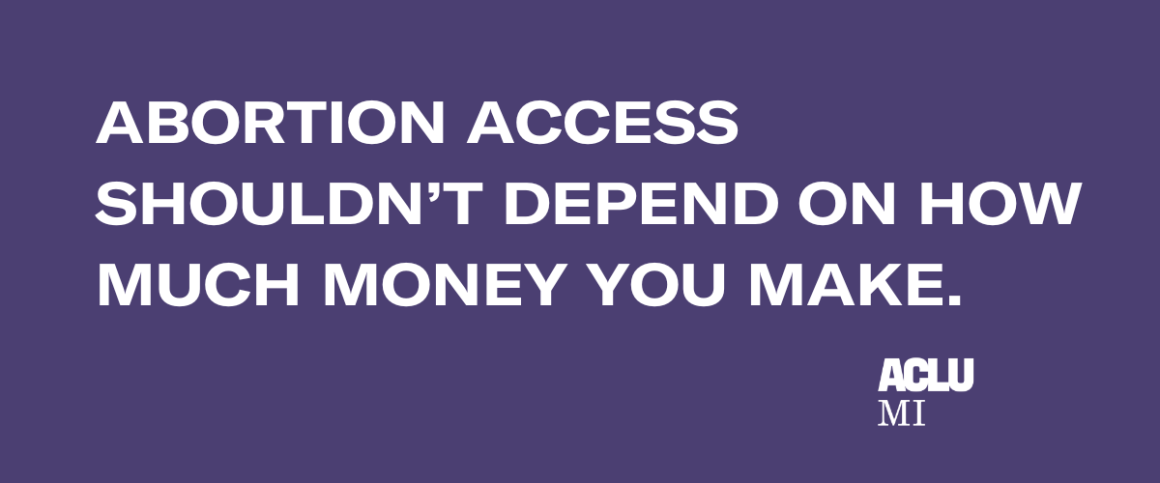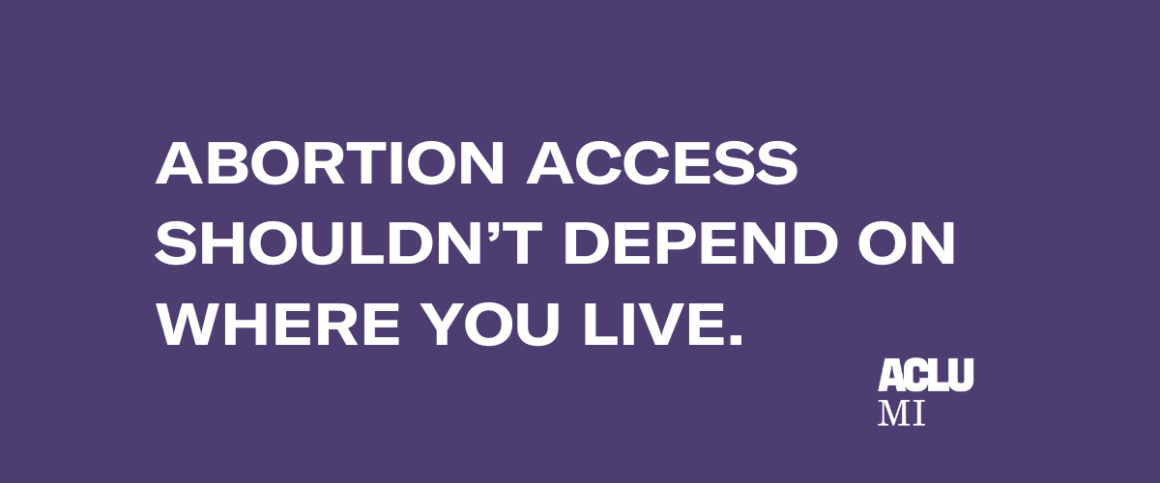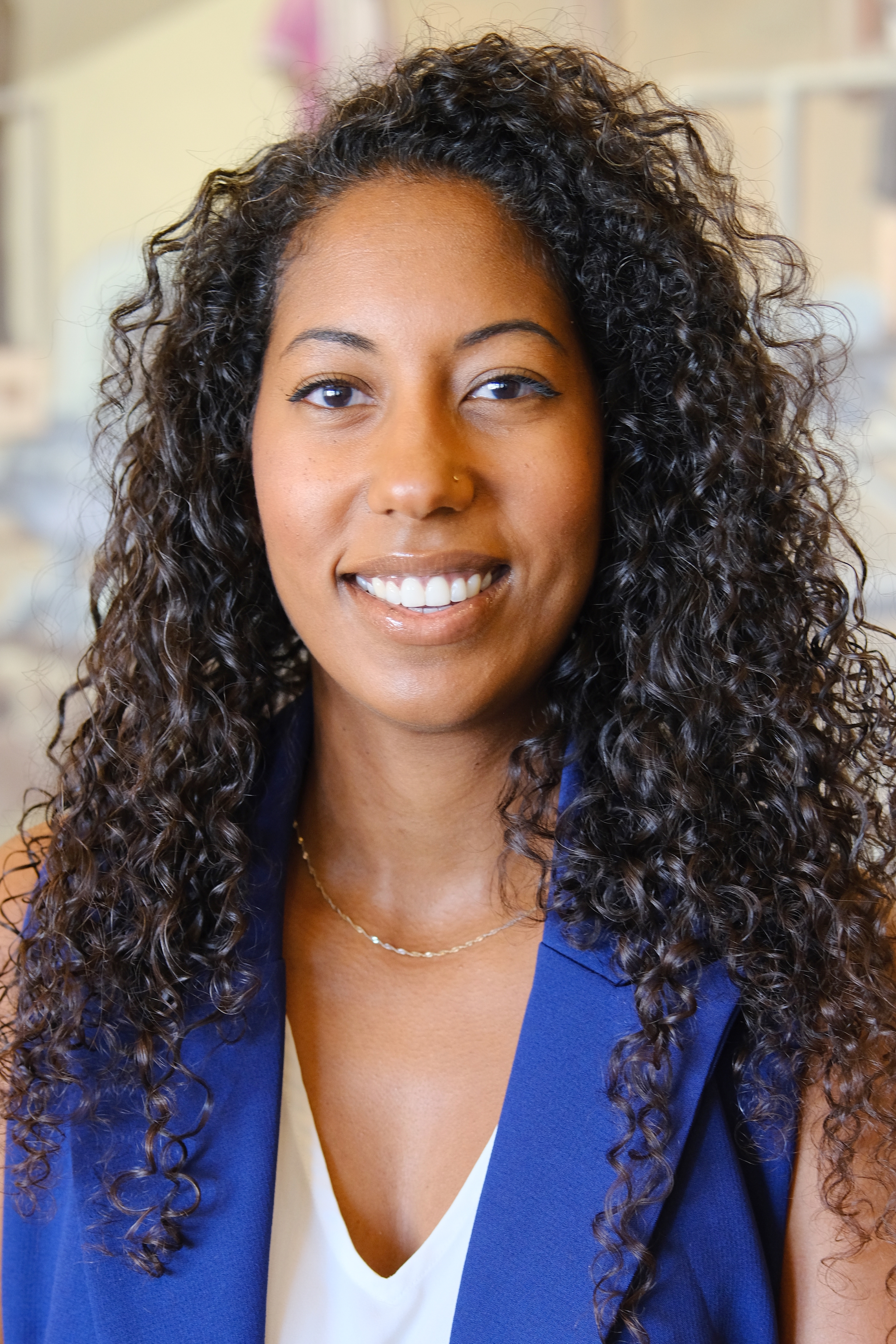When it comes to securing access to abortion for all Michiganders, telling our personal stories is critical. These individual narratives, especially when used collectively, can be a powerful way to help convince lawmakers that, even with the passage of the Reproductive Freedom for All ballot measure last year, much work remains to ensure that anyone in Michigan who needs an abortion this medical procedure can access it.
My story as an abortion rights advocate began when I started working for the ACLU of Michigan 15 years ago. Even though public opinion has long showed that a majority of Michiganders support the right to abortion, anti-abortion politicians in the state Legislature were relentless in their quest to ban abortion. Year after year they continued to thwart the public will by passing a litany of laws intended to make accessing abortion care as difficult and out of reach as possible. These restrictions, which have nothing to do with medical care and everything to do with politics, have created a web of barriers that push safe and affordable abortion care out of reach, especially for people struggling to make ends meet, young people, rural residents, Black people, Indigenous people, and other people of color.
When U.S. Supreme Court did what was once unthinkable to many and overturned Roe v. Wade last year, Michiganders immediately organized to take back their power by propelling Proposal 3 to a landmark victory and helping put a majority that supports abortion rights in both chambers of the Michigan Legislature.
Attend our upcoming event:
Storytelling: The Story of Self, Story of Us, Story of Now
Wednesday, May 17, from 6:00-8:00 p.m.
Online (Zoom)
People across the state have made it clear: We support access to abortion. It’s time that our laws and policies reflect our values. We must now push our lawmakers to keep the progress going by repealing dozens of state laws that are blocking access to abortion.
To learn how you can use your personal narrative to help make that happen, attend the virtual webinar, Storytelling: The Story of Self, Story of Us, Story of Now, being held Wednesday, May 17, from 6-8 p.m. Please join us to help keep the narrative of positive change going.
Sincerely,
Merissa Kovach
Date
Thursday, May 4, 2023 - 12:45pmFeatured image




